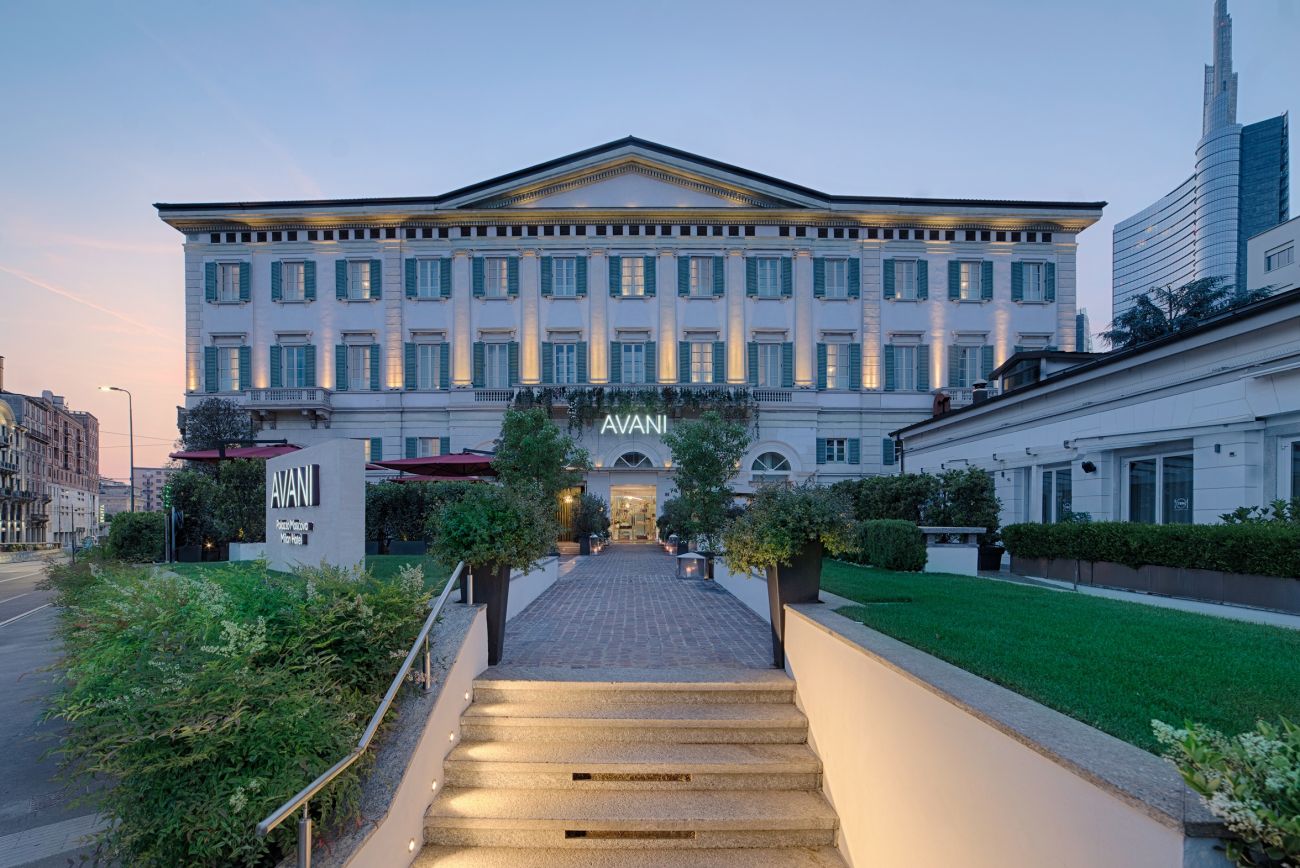
INTERVIEW – ELENA RUIZ, VICE-PRESIDENT OF SUSTAINABLE BUSINESS, MINOR HOTELS EUROPE & AMERICAS: “INVESTORS AND OWNERS ARE ALSO SEEKING TO BE ALIGNED WITH GLOBAL COMMITMENTS”
Minor Hotels' CSR specialist guides us through the group's strategy for maximizing its positive impact. |
 |
INTERVIEW – ELENA RUIZ, VICE-PRESIDENT OF SUSTAINABLE BUSINESS, MINOR HOTELS EUROPE & AMERICAS: “INVESTORS AND OWNERS ARE ALSO SEEKING TO BE ALIGNED WITH GLOBAL COMMITMENTS”
Minor Hotels' CSR specialist guides us through the group's strategy for maximizing its positive impact. |
Category: Worldwide - Industry economy
- Interviews and portraits
- Sustainability - Interviews - Industry leaders
Interview made by Vanessa Guerrier-Buisine on 2024-08-26
 Elena Ruiz, Vice-President of Sustainable Business, Minor Hotels Europe & Americas
Photo credit © Miguel Ángel Gómez / Minor Hotels
In an interview with Journal des Palaces, she details Minor Hotels' initiatives to align strategy and operations with global decarbonization targets. Elena Ruiz oversees the company's sustainability strategy, ensuring compliance with regulations and launching initiatives to maximize the hotels' positive impact on local communities. Minor Hotels has signed up to the Science-Based Targets initiative (SBTi), which guides companies in limiting global warming to 1.5°C and has developed an SBT 2030 plan based on five strategic levers, ranging from process control to emissions offsetting. In addition, the group is engaged throughout its value chain, going so far as to support its suppliers in a virtuous initiative to improve their processes.
Through this interview, Elena Ruiz offers an inspiring vision of how Minor Hotels is leading its transition to a more sustainable future, affirming its position as a leader in responsible tourism.
Journal des Palaces: Could you describe your duties as Director of Sustainability for Minor Hotels Europe & Americas?
Elena Ruiz: As VP of Sustainable Business, the main role is to lead the Company's roadmap towards decarbonization and be responsible for the development and execution of the sustainability strategy. This involves ensuring compliance with sustainability regulations, overseeing decarbonization targets and supporting the development of initiatives that maximize the positive impact of our hotels on the communities in which we operate, guiding the company towards a more sustainable future. This is a highly cross-functional role that requires coordination with other areas of the company to lead responsible engagement.
What does the Science-Based Targets initiative(SBTi) represent? What process must be followed to achieve this validation?
The Science-Based Targets Initiative (SBTi) provides a methodology that assigns a company's individual contribution to the global goal of limiting climate change to 1.5°C. This independent body also ensures that net-zero emissions targets are achievable and reliable, guaranteeing that companies commit to transparent climate action and provide a clear path to decarbonization by 2050.
Achieving validation of the SBTi is a process that begins with the submission of short- and long-term decarbonization commitments. This step is crucial because it establishes the company's intentions and goals for reducing its carbon footprint.
The next step is to perform a comprehensive calculation of the company's carbon footprint, according to GHG Protocol and SBTi's specific requirements across all three scopes of emissions. With this data, the company can then proceed to set precise targets, using SBTi's methodology and tools to ensure that these targets are science-based and consistent with current climate science.
The final step in the process is validation by SBTi, which confirms that the company has followed this methodology and established criteria, thereby confirming the company's commitment to the fight against climate change.
What challenges do you foresee in achieving your greenhouse gas emission reduction targets for scope 1 and 2, and what strategies have you developed to overcome them?
As a global company, we face significant challenges in reducing our scope 1 and 2 greenhouse gas emissions, which include direct emissions from owned or controlled sources and indirect emissions from the generation of purchased energy.
The strategies to address these challenges are integrated into our SBT 2030 Plan, which includes five specific levers to reduce our carbon footprint. The first relates to process control and monitoring, both for our hotels and our suppliers. This is a very effective way of transferring emissions cuts to the entire value chain. The second lever is energy efficiency, which is necessary for all consumption in each hotel.
Third, we monitor the use of green energy, including both renewable energy for our own consumption and the purchase of green electricity. The fourth lever is our emissions offsetting strategy. We see this as an exceptional alternative to meet our annual targets. In addition, it gives visibility to our corporate climate commitment and involves our customers in it.
The fifth and final lever is the analysis of the carbon footprint of our expansion projects. Having this information allows us to adapt the needs of the new properties managed without compromising the climate objectives previously set.
In addition to certifying more than half of your hotel portfolio and using 66% renewable electricity, what other innovative initiatives are you considering to further strengthen your sustainability footprint?
The group has always been at the forefront of innovation and technology applied to sustainable business, as it helps us to be more efficient and also allows us to monitor a wide range of data to track our decarbonization targets and ensure compliance. Innovation is also applied to the renovation of our hotel facilities and remodelling plans, seeking more efficient and sustainable solutions.
In addition to optimizing energy use, we are piloting automated solutions and waste metrics at several hotels to improve our food waste reduction strategy through artificial intelligence.
Furthermore, the company's commitment to the use of digital tools, such as Mobile Guest Service, Fast Pass or smart tablets at the front desk, helps us save tons of paper every year, offering our guests a more efficient, agile and simple paperless management.
Among the challenges of our CSR strategy, GHG emissions from the supply chain, and in particular scope 3, is a crucial issue. Could you give us some specific examples?
For example, in the past few years we have identified our most carbon-intensive suppliers and worked with them to improve their processes. Most importantly, we work with our suppliers on sustainability through monitoring and dialogue.
We also provide them with a training manual with practical examples and what we need them to report - carbon footprint, energy and water consumption, best practices… - so that they understand what information they need to start collecting and, once they have it, we can identify areas for improvement.
Some of the investments you make to achieve your objectives must involve hotel owners. How do you convince them to invest according to your guidelines?
We believe that, over the last few years, we have been living in a moment of transition where, fortunately, investors and owners are also seeking to be aligned with global commitments and are counting on us as a partner to help them follow this path.
In addition, we have demonstrated that this type of investment has multiple long-term benefits and added value, both in terms of efficiency and positioning the company as a leader in responsible tourism.
 Avani Palazzo Moscova Milan Hotel
Photo credit © Minor Hotels
|
|





